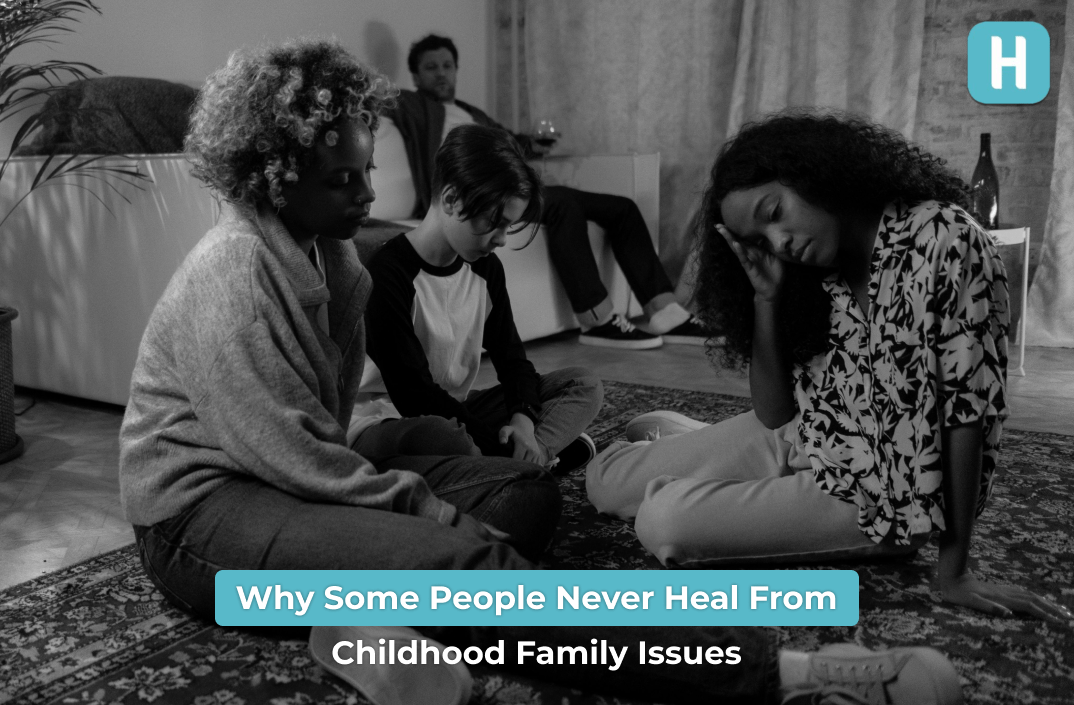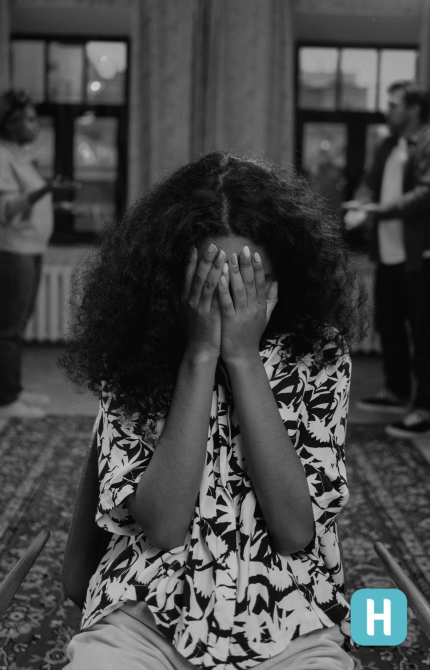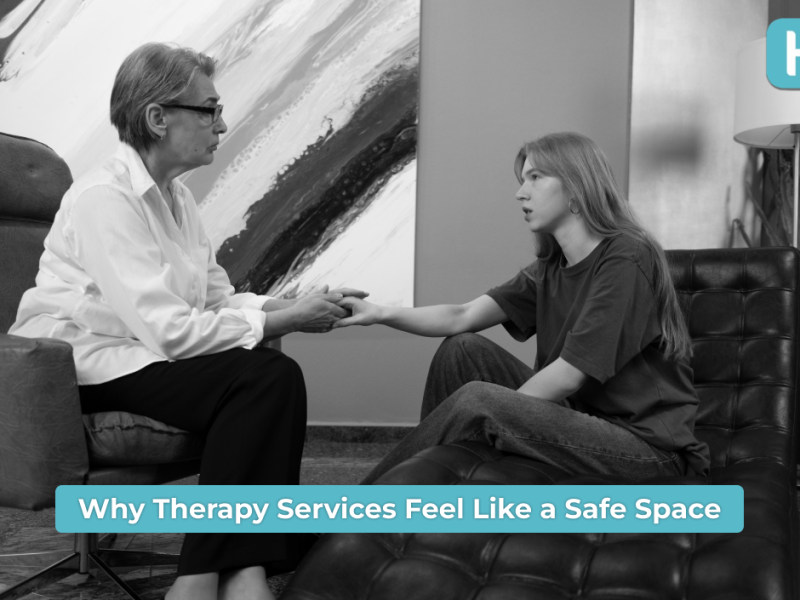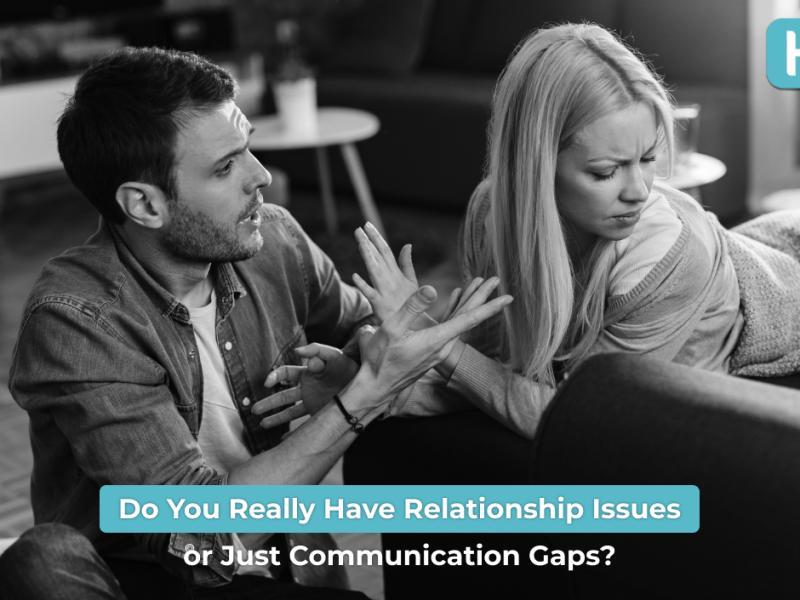When we talk about Family Issues, most people think of everyday arguments or misunderstandings that fade away with time. But for many, these problems run much deeper. Childhood experiences shape who we are, and unresolved wounds from our early years can quietly follow us into adulthood. Some people carry these scars for life, and no matter how much they try, they feel stuck. The question is: why do some people never heal from Family Issues, while others manage to break free?
This article dives into the reasons, the emotional layers, and the journey of healing. We’ll explore topics like childhood trauma recovery in Dubai.
When Family Issues Become an Unseen Weight on Your Heart
For children, home is supposed to be the safest place in the world. But when the home is filled with conflict, neglect, or criticism, that sense of safety disappears. Family Issues that begin early can shape how children see themselves and the world.
- If parents constantly fight, the child grows up fearing relationships.
- If parents ignore their feelings, they learn to silence their own voice.
- If love were conditional, they would grow up thinking they must “earn” love.
This silent weight doesn’t go away on its own. Many people carry it into adulthood, repeating patterns that cause pain. This is why some never find peace with their Family Issues.
Childhood Emotional Neglect: The Hurt You Couldn’t See
One of the most common but hidden Family Issues is childhood emotional neglect. Unlike physical abuse, it’s not about what parents did but what they didn’t do.
- Parents didn’t comfort you when you cried.
- They didn’t listen to your fears.
- They didn’t celebrate your small wins.
This absence creates a silent wound. You grow up believing your emotions don’t matter. As adults, people with childhood emotional neglect struggle to connect with others, doubt their worth, and often become people pleasers. Healing this takes more than time; it takes awareness and effort to unlearn these patterns.
Why Healing Toxic Family Dynamics Feels Impossible
Not every family is filled with constant fighting, but many are trapped in toxic dynamics. These are patterns of control, criticism, or manipulation that repeat for years.
When children grow up in such homes, they learn to survive by staying quiet or pleasing others. As adults, they often carry these habits into friendships, marriages, and even work.
Healing toxic family dynamics is difficult because:
- The toxic behaviour feels “normal” after years of living with it.
- Confronting parents or relatives often brings guilt or fear.
- Families may deny the problem, leaving the person feeling alone.
- So the cycle continues, and Family Issues remain unresolved.

Emotional Neglect by Parents: The Hurt That Never Fades
We often hear about strict or abusive parents, but sometimes the real pain comes from parents who were simply absent. Emotional neglect by parents leaves a child feeling invisible.
Imagine growing up without hearing:
- “I’m proud of you.”
- “I understand how you feel.”
- “I love you no matter what.”
The absence of these words becomes a lifelong echo. Adults who faced emotional neglect by parents often struggle with self-esteem, find it hard to trust others, and may never feel truly loved. It’s one of the hardest Family Issues to heal because it’s rooted in what wasn’t there.
Overcoming Parental Conflicts:
Another reason some people never heal from Family Issues is the constant exposure to parental conflicts. When children see their parents fight, shout, or even threaten each other, it builds fear and insecurity.
As adults, these individuals often:
- Avoid relationships out of fear.
- Repeat the same conflict patterns in their own marriages.
- Struggle with anxiety and depression.
Overcoming parental conflicts is challenging because the memories are often vivid and painful. Some people block them out, but the effects show up in their behaviors and choices. Healing requires unlearning what they saw as “normal.”
The Impact of Unresolved Family Trauma
One of the biggest reasons some never heal is the impact of unresolved family trauma. Trauma doesn’t fade away with age; it lives in the body and the mind.
Unresolved trauma can show up as:
- Sudden anger or mood swings.
- Fear of abandonment.
- Trouble forming healthy relationships.
- Physical symptoms like migraines, insomnia, or stomach issues.
The impact of unresolved family trauma is heavy. Without therapy or guidance, many people carry it their whole life, unable to break free from the past.
When the Parent Child Bond Becomes Painful
The bond between parent and child is meant to be sacred. But when that bond itself becomes a source of pain, it’s called parent-child trauma. This could come from:
- A parent who was abusive.
- A parent who abandoned the family.
- A parent who made love conditional.
Parent-child trauma is one of the hardest Family Issues to heal because it cuts right into the foundation of trust. If you couldn’t trust your parents, trusting anyone else feels impossible.
Why Some People Never Heal
So why do some people carry their Family Issues forever? Here are the most common reasons:
- Denial: They convince themselves “it wasn’t that bad.”
- Fear: Facing the truth means facing pain they’ve avoided for years.
- Guilt: They feel guilty for blaming parents, even if it’s justified.
- Lack of Support: Healing requires safe spaces, therapy, or people who listen.
- Cultural Pressure : In many cultures, questioning parents is seen as disrespectful.
All of these reasons trap people in cycles of pain.

How to Heal With Family Trauma
Healing is not easy, but it is possible. The first step is recognising the wound. Once you name it, you can begin to address it. Here are some ways to begin healing from family trauma:
- Therapy: Talking to a professional helps you untangle years of pain.
- Boundaries: Learn to say “no” to toxic family behaviours.
- Self-Compassion: Treat yourself with the kindness you never received.
- Journaling: Writing out your feelings helps release what’s bottled up.
- Support Groups: Sharing your story reminds you that you’re not alone.
The path is long, but small steps lead to big changes.
Childhood Trauma Recovery in Dubai:
In places like Dubai, mental health awareness is growing. Childhood trauma recovery in Dubai is becoming more accessible with therapy centers, wellness retreats, and community support. Many people are now seeking professional help to deal with Family Issues that they once thought were impossible to heal.
The approach in childhood trauma recovery in Dubai combines modern psychology with cultural sensitivity, giving individuals tools to process the past without shame. This shows that no matter where you live, healing is a journey worth taking.
The Role of Culture in Healing
For many, culture plays a big role in why healing doesn’t happen. In some societies, family honour is more important than individual well-being. Children are told to “forget and forgive,” even when they’ve suffered deeply.
This makes people bury their pain instead of addressing it. Unfortunately, buried pain doesn’t disappear; it shows up in relationships, work stress, or health problems. Breaking free from cultural pressure is often the hardest step in healing Family Issues.
Why Healing Matters
Healing from Family Issues is not just about the past; it’s about the future. If left unresolved, these wounds pass down to the next generation. Parents who never heal from their trauma often repeat the same patterns with their own children.
By addressing the pain, setting boundaries, and seeking help, people can stop the cycle. Healing is not only for yourself; it’s also a gift to your children and their children.
Generational Impact of Family Issues
One overlooked reason healing is so important is the way Family Issues are passed down through generations. Children don’t just learn from what their parents say; they learn from what their parents do.
- A parent who never learned love may not know how to show love.
- A parent who grew up with shouting may think shouting is normal.
- A parent who never received comfort may not know how to comfort their own child.
This is how cycles of pain continue. But the good news is that healing in one generation can break the cycle for the next. When you take steps toward healing toxic family dynamics, you aren’t just helping yourself; you’re giving your children a healthier, safer future.
Healing Isn’t Linear
It’s important to remember that recovery isn’t a straight line. Some days, you’ll feel strong and hopeful. Other days, the old wounds will ache again. That doesn’t mean you’re failing,it means you’re human. Healing from Family Issues is like peeling back layers of an onion: each layer reveals another, but it also brings you closer to the core of who you are.
There will be setbacks. There will be moments when the pain feels heavy. But every small step,every journal entry, every boundary set, every honest conversation,is progress.
How Helply Can Help You Heal From Family Issues
At this point, many people wonder: “Where do I even start?” Healing from Family Issues can feel overwhelming, but you don’t have to do it alone. This is where Helply steps in.
Helply isn’t just another platform. It’s a safe space created for people carrying heavy childhood stories, stories of childhood emotional neglect, parent-child trauma, or the impact of unresolved family trauma.
Here’s how Helply can guide you:
- Compassionate Listeners: You’ll find therapists and counsellors who don’t judge you for your pain. Instead, they help you put words to your experiences.
- Personalised Healing Paths: Whether you’re working on healing toxic family dynamics or learning how to heal with family trauma, Helply matches you with strategies and professionals that fit your journey.
- Privacy & Comfort: Many people fear opening up because of cultural pressure or shame. With Helply, you can speak freely in a safe, private space.
- Tools for Daily Growth: From journaling exercises to emotional check-ins, Helply gives you practical steps to manage the emotions that come with unresolved Family Issues.
Most importantly, Helply reminds you that you are not alone. The wounds from the past don’t define you. With support, patience, and guidance, healing is possible.
Not everyone heals from Family Issues, but everyone has the chance to try. The process is painful, but staying in the pain of the past is far worse. Whether it’s childhood emotional neglect, healing toxic family dynamics, or learning how to heal with family trauma, every step counts.
Healing is not about erasing the past; it’s about learning to live without letting the past control you. Remember, you don’t have to carry your childhood forever. You deserve peace, love, and the freedom to create a new story.
FAQs
- What are the signs of unresolved family trauma?
Anxiety, trust issues, unhealthy relationships, or even physical stress like headaches and poor sleep.
- Can childhood emotional neglect affect adult relationships?
Yes. It can cause low confidence, fear of rejection, and trouble sharing feelings.
- How do I deal with the parental conflicts I saw as a child?
Start by being aware, seek therapy if possible, and practice healthier ways of communicating.
- Do I need therapy to heal toxic family dynamics?
Not always, but therapy makes the journey easier and gives you expert guidance.
- Can healing break the cycle for the next generation?
Definitely, when you heal yourself, you stop passing the same pain to your children.



